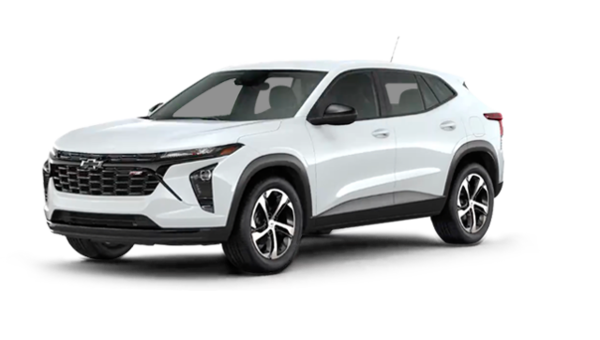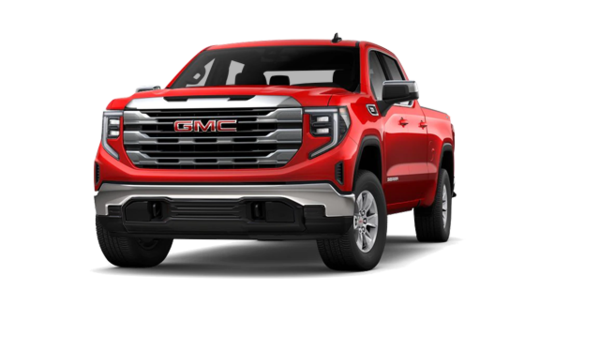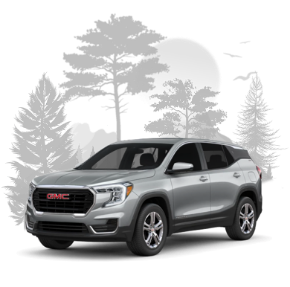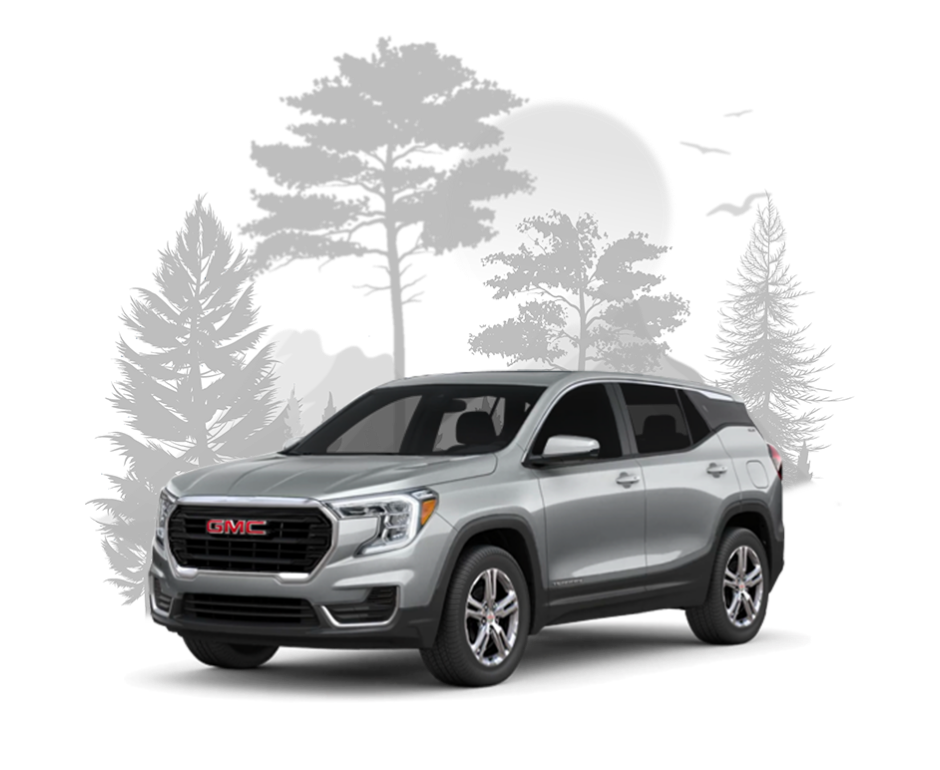✕
Cash purchase offer is based on the 2025 CHEVROLET TRAX LT FWD (1TU58 679a0be13eaa) model, with 1.2L 3 cyl. engine and 6 speed Automatic transmission. Cash purchase selling price is $31,014.72 (plus taxes). Cash purchase selling price ($31,014.72) includes rebates: Dealer Price Reduction ($500.00). Cash purchase selling price ($31,014.72) includes: Freight and PDI ($2,300.00), Admin Fee ($495.00), First Canadian VRP Full Term Standard ($409.00), Air conditioning excise tax ($100.00), Fuel Charge ($85.00), License Fee (Excluding Potential Fines) ($64.00), Tire Duty ($22.50), OMVIC Fee ($12.50) including installation. Plus (HST) & Licensing. Finance offer is based on the 2025 CHEVROLET TRAX LT FWD (1TU58 679a0be13eaa) model, with 1.2L 3 cyl. engine and 6 speed Automatic transmission. Finance selling price is $31,014.72 (plus taxes). Finance payments include rebates: Dealer Price Reduction ($500.00). Finance payments include: Freight and PDI ($2,300.00), Admin Fee ($495.00), First Canadian VRP Full Term Standard ($409.00), PPSA ($124.11), Air conditioning excise tax ($100.00), Fuel Charge ($85.00), License Fee (Excluding Potential Fines) ($64.00), Tire Duty ($22.50), OMVIC Fee ($12.50) including installation. Finance offer is based on a 84 months term and 3.99% interest rate. 182 bi-weekly payments of $196.13 ($221.63 taxes included) with $0.00 cash down and $0.00 net trade in. Cash down payments are due upon vehicle delivery. Trade-in tax credits require proof of ownership. Finance total obligation is $40,336.66 (taxes included). Finance total cost of borrowing is $5,165.92. Annual Percentage Rate (APR) is 4.09%. Limited time purchase financing offer on approved credit. Some customers will not qualify. Rates and requirements may vary depending on credit worthiness. Payments and conditions may vary for a commercial use. All applicable taxes are calculated on the total amount prior to deduction of the down payment. Lease offer is based on the 2025 CHEVROLET TRAX LT FWD (1TU58 679a0be13eaa) model, with 1.2L 3 cyl. engine and 6 speed Automatic transmission. Lease selling price is $30,264.72 (plus taxes). Lease payments include rebates: Lease Cash Stackable with CDT (GFC) ($750.00), Dealer Price Reduction ($500.00). Lease payments include: Freight and PDI ($2,300.00), Admin Fee ($495.00), First Canadian VRP Full Term Standard ($409.00), Air conditioning excise tax ($100.00), Fuel Charge ($85.00), License Fee (Excluding Potential Fines) ($64.00), Tire Duty ($22.50), OMVIC Fee ($12.50) including installation. Lease offer is based on a 60 months term and 3.9% interest rate. 130 bi-weekly payments of $189.43 ($214.06 taxes included) with $0.00 cash down and $0.00 net trade in. $0.00 down payment and tax on down payment, $0.00 net trade-in and $214.06 first payment are due at lease inception. Total amount due at lease inception is $214.06 ($0.00 down payment, First payment ($214.06) and (HST) $0.00). Trade-in tax credits require proof of ownership. Lease offer is based on a 20000 kilometer allowance per year. $0.16 fee per excess kilometer will apply. Estimated vehicle residual value is $9,566.08. An option to purchase at lease end (Buy Back Value) of $9,566.08 may be available. A security deposit might be required. Limited time leasing offer on approved credit. Some customers will not qualify. Rates and requirements may vary depending on credit worthiness. Payments and conditions may vary for a commercial use. Taxes on initial cash down and after tax rebates (including government rebate) are excluded and must be paid upon delivery. Lease total obligation is $27,827.80 (taxes included). Lease total cost of borrowing is $3,927.26. Annual Percentage Rate (APR) is 3.9%. The illustrated vehicle is based on the 2025 CHEVROLET TRAX LT FWD (1TU58 1LT) model, with 1.2L 3 cyl. engine and 6 speed Automatic transmission. The illustrated vehicle's cash purchase selling price is $31,014.72. While every reasonable effort is made to ensure the accuracy of this information, we are not responsible for any errors or omissions contained on these pages. Please verify all information and pricing with a sales representative or ask online. The dealership reserves the right to make changes at any time, without notice, to the prices, rates, models, materials, equipment, specifications, and availability, or to discontinue models or equipment. Vehicle trade-ins are subject to dealer's approval. Trade-in tax credits require proof of ownership. Luxury tax included (where applicable).












